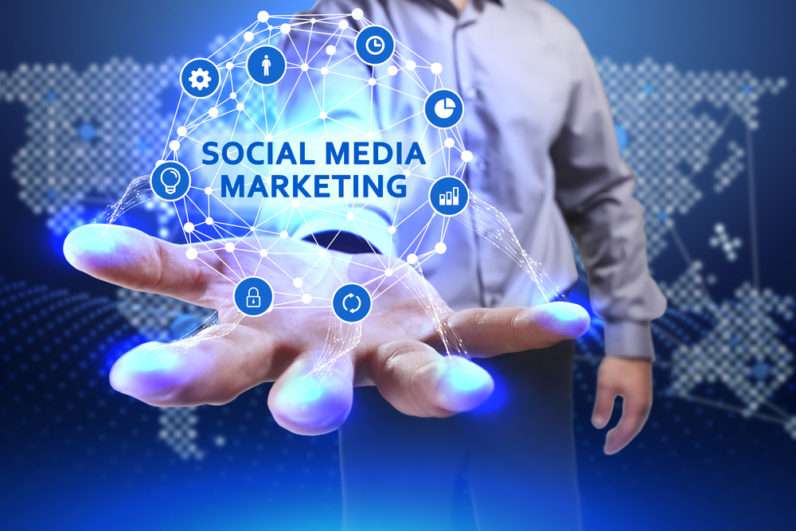How Artificial Intelligence is Changing Social Media Marketing?

In the world of big data and content marketing, automation and big data have become the most recent buzzwords among social media marketers. Since the majority of companies cannot possibly monitor every Facebook user that may be lucrative to them as a client to demonstrate unique ads, send personalized messages or thoroughly study their current moods, standardization is the preferred path nowadays due to the cost and human resource limitations. While most solutions in this sphere attempt to offer ‘template customization’ to make this marketing communication format seem less redundant, artificial intelligence may be the unexpected ultimate solution to this age-old dilemma. Below are some key considerations regarding the ways AI can change social media marketing.

-
Content creation
With ‘pull’ marketing being the widely accepted standard in the social media environment, the key problem faced by marketers is the difficulty of producing large volumes of high-quality content necessary to attract visitors to your website and, most importantly, to retain them. Let us spill it right away – no, AI solutions cannot imitate Neil Patel (yet) and you still have to recruit talented copywriters and designers. The good news is that such solutions as Wordsmith are capable of producing readable texts on the basis of the facts you ‘feed’ them. This may free your busy schedule from ‘filler’ posts about recent company news and give you more time to focus on more engaging content requiring creativity.

-
Paid ads optimization
Making your CPS and CPI decisions may be a major pain where you have to monitor platform offerings, experiment with different keywords, trace consumer reactions, and revise your bidding strategies accordingly. While marketing intuition forms a large part of these choices, they also include a large share of dull data analysis. This is where AI-based solutions can really prove their worth. Just think about setting automated procedures monitoring your campaigns on a 24/7 basis and implementing proper adjustments on the basis of your suggestions and their intellectual mechanisms.
-
Marketing communication
With most customers automatically marking inbox marketing messages as ‘spam’, you only have one chance to grab the attention of your audience with your proposal. However, even initially engaged consumers may unsubscribe if they are bombarded by irrelevant follow-up updates that clutter up their news feeds. Advanced text mining capabilities provided by AI and machine learning solutions allow you to avoid this problem and only show the content that may be interesting to a particular consumer. Additionally, some of the currently developed solutions will monitor subscriber ‘moods’ and adjust communication patterns depending on them.
-
Customer service
Being another side of the same coin, customer service is, probably, the most critical component of marketing communication. Since 42% of consumers expect that brands must respond to their messages within 1 hour or less, this creates substantial stress because most companies cannot afford 24/7 support. While AI-based chatbots may have a bad reputation with consumers considering them ‘worthless time-wasters’, they can be particularly good for a certain task, namely to collect the information about the problem and to forward it to appropriate company department. AI-powered bots also filter spam messages and fake accounts reducing the workloads of live specialists.
-
Influencer appraisals
Selecting proper influencers and micro-influencers for your brand may be especially important from both marketing and reputational perspectives. With major scandals about 10-year-old offensive tweets quickly becoming the daily reality, this also means that you should carefully screen your prospects in order to be 100% certain that their background is impeccable. Artificial intelligence solutions may assist you with these goals by analyzing the preferences of your targeted consumer segments and exploring the characteristics of popular influencers to select the optimal match. Performing a deep textual analysis for ‘problematic’ themes in all posts of a certain celebrity may also be a highly valuable feature.
-
Competitor analysis
A similar strategy may be utilized to explore key competitors from several standpoints. While the lack of relevant information is one of the primary sources of bias in decision-making, AI-powered solutions may arm the marketers with the capability to make more informed decisions based on big data analysis. You can also analyse the successful brands of your choice in terms of their content themes, inbound traffic sources, and other operational characteristics to ‘mimic’ their approach. Similarly, you may research your niche competitors to see how you can outmatch them.
-
Image-based product offerings
Remember the last time you came across an Instagram photo with a really lovely handbag in it or saw an interesting gadget in the hands of the person standing next to you in an airport queue? In the days of the old, the chances of purchasing the same item depended on your photographic memory and the capability of a store expert to recognise the product you describe. AI-powered neural networks are already disrupting this sphere by instantly identifying thousands of items and people in the images published on social media. This allows you to tag all your friends on a recent party photo with a single click or find the manufacturer of any product you saw in your news feed.
-
Predictive marketing
Generic ‘people who bought X also bought Y’ messages are usually skipped by online buyers due to their overall irrelevance to their interests. However, the growing connectivity also means that e-stores may peek into the social media profiles of the consumers and compare their purchases with their general interests and buying preferences. This opens almost limitless possibilities for predictive marketing since new offerings will be highly personalized and tailored to the pricing preferences of certain customers. Some buyers are already scared of the accuracy of banner advertisements offering the products that they recently considered buying offline.

Technology acceptance model implies that the adoption of new technologies largely depends on their perceived ease-of-use and perceived usefulness. For many companies, advanced AI-based solutions do not presently represent any lucrative qualities since the product characteristics themselves are still being defined by the ongoing technology development, which also makes it difficult to use these instruments. However, keen marketers realize that this trend is another disruptive innovation that has the potential to completely change the ways we market products and services in the online environment. Therefore, we would advise you to start exploring these opportunities right now in order to equip your company with the right tools for succeeding in the nearest future.








This is awesome post this is very useful post thank for share your post this is very informative post
AI is faster to pick up on consumer behavior change and which is the best social media platform to get one’s target customers. However, what do you think about bias?